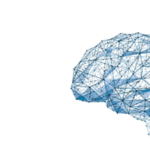Add this course to your organization’s subscription
Description
This course helps navigate the regulatory aspects related to SaMD and CDSS when conducting clinical evaluations or investigations. It also addresses special considerations for SaMD and CDSS, such as AI/ML-enabled medical devices, combination medical devices, and the regulatory obligations investigators have when developing their own CDSS and SaMD. In addition, the course discusses considerations for the design, development, and deployment of SaMD and CDSS, so developers, clinician-researchers, and sponsor-investigators can prevent wasted time, money, and resources and ensure safe and effective SaMD and CDSS.
Audience
Compliance Professionals, Investigators, IRB Administrators, IRB Members, Research Personnel, Software Designers, Software Developers
Meet the Authors

Tamiko Eto, MS, CIP – Mayo Clinic
Ms. Eto has 19 years of HRPP experience and leverages this experience to implement policies and guidance to AI research. She has developed tools for IRB AI review and serves as an AI Ethics Advisory Board member for EAI at Northeastern University and is a Policy Advisor for the CAIDP.

Jonathan Green, MD, MBA – National Institutes of Health
Dr. Green is the Director of the Office of Human Subjects Research Protections at the National Institutes of Health (NIH), where he oversees the human research protection program for the NIH Intramural Research Program. He is board-certified in Internal Medicine, Pulmonary Diseases, and Critical Care Medicine.

Sunny Chung, MD, MHS – Yale School of Medicine
Sunny Chung is a physician-researcher specializing in applying large language models (LLMs) to healthcare. They lead projects in gastroenterology, clinician-AI teaming, and risk prediction, understanding the optimal implementation of LLMs and generative AI in clinical care.

Dennis L. Shung, MD, MHS, PhD – Yale School of Medicine
Dennis L. Shung, MD, MHS, PhD, is an Assistant Professor of Medicine at Yale School of Medicine and Director of Digital Health in Digestive Diseases. He leads the Human+Artificial Intelligence in Medicine lab, which focuses on enhancing human presence with AI. Shung is also involved in multiple gastroenterology AI initiatives and research.








